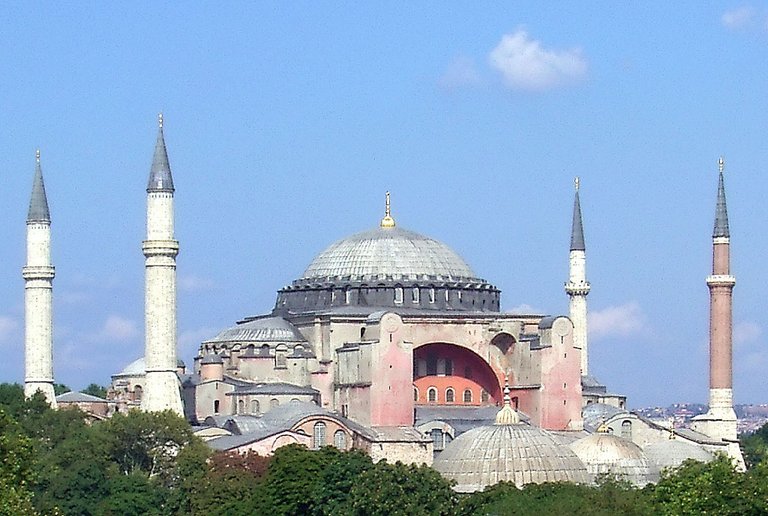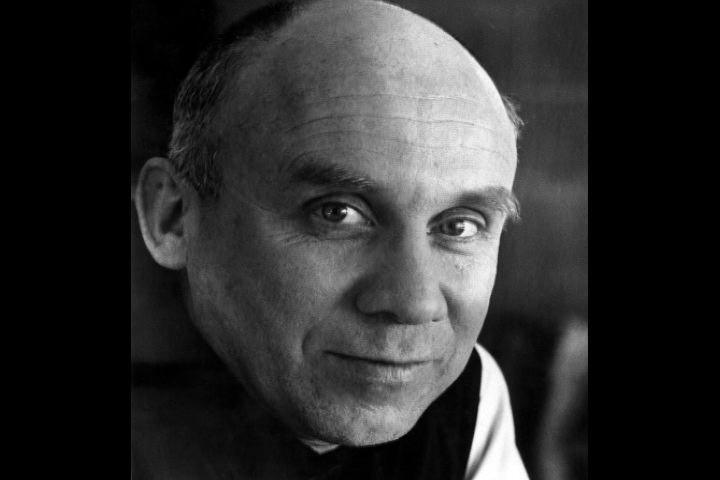
There is a prose-poem I like by the Trappist monk and contemplative, Thomas Merton. It is called "Hagia Sophia" - literally, "Holy Wisdom." It opens with these lines:
There is in all visible things an invisible fecundity, a dimmed light, a meek namelessness, a hidden wholeness. This mysterious Unity and Integrity is Wisdom, the Mother of all, Natura naturans. There is in all things an inexhaustible sweetness and purity, a silence that is a fount of action and joy. It rises up in wordless gentleness and flows out to me from the unseen roots of all created being, welcoming me tenderly, saluting me with indescribable humility. (Thomas Merton, from "Hagia Sophia")
Thomas Merton, a modern day mystic, saw his world through eyes of insight. Things that may look dry, dreary, and flat on the outside actually have an inner beauty and majestic purpose within.
Think on the phrases he uses:
- An invisible fecundity: All things are life giving, fertile with possibility, nurturing. Yet this potential is invisible to most; it cannot be seen without discernment.
- A dimmed light: A light brings clarity to the darkness, it exposes the unseen. Without light we are blind. A dim light reveals things to a lesser extent, but causes us to ask what is getting in the way, preventing the full light to shine forth.
- A meek namelessness: A name gives purpose and identity, knowledge and understanding; we have a name for the things we know. To be nameless implies that purpose and understanding have not yet been identified; and a namelessness that is "meek" remains quiet and unassuming, waiting patiently for its intended purpose.
- A hidden wholeness: To be whole is to be complete, unfragmented, full of meaning. Yet that state of completion, if it is hidden, waits to be discovered. The wholeness is there - it is real and true - but has not yet been uncovered.
So, what does this mean, practically speaking?
Merton is not saying that all things are good in themselves - especially the hard, painful, or evil things! Merton was a pacifist and spoke out plainly against racial discrimination, greed politics, violence, and war. He was a prolific social activist, even from the isolated walls of his monastery.
What he means is there is beauty and purpose even in the beat up and broken places of life. There are seeds of joy waiting to be discovered, and it takes Wisdom to find them. Wisdom is the thing that unites and integrates our lives ("this mysterious Unity and Integrity"), aligning us with Divine purpose.
I do believe that in all things Good can be found. Even in the most painful of places.
One of my closest friends is facing his third round of cancer. He knows that life is fragile, limited, and not to be taken for granted. Despite knowing that death could come at any time, he lives his life with joy and fruitfulness. And based on Merton's words above, the better word here is not "despite," but "because of." My friend lives life to the fullest because he is aware of his finitude. This is the good, the beauty, the "hidden wholeness" that can come out from cancer. Cancer itself is a horrible mutation of life, but good can still come from it. I learn Wisdom every day from my friend.
It puts me to shame as I complain about the small things I face every day - petty work politics, fractured relationships with others, physical fatigue at the end of a long day. Yet seeing my friend rise above cancer - and in so doing, conquer it! - it gives me courage to face my own places of pain, no matter how small and insignificant. These places of pain help me find my strength as I discover within those moments of "inexhaustible sweetness and purity."
This, to me, is Hagia Sophia, Holy Wisdom!

This picture of Thomas Merton was shared by cistercaminante, available for reuse.
this was a wonderful post.
I hope we can learn from people like your friend, and achieve this awareness without facing that dreaded c-word (and I don't mean the four lettered one, of course)
Not so dreaded that one.
But after that small chuckle to relieve tensions (I hope that's been the rough effect, and you are not steaming and reaching for the flag.)
That was a beautiful piece of poetry. I just went and read the first two chapters (? stanzas? ¿?)
Funny how even with tears streaming down my face I get down the page a few pgdwns and my roving internet mind kicks in and says, what about those three hundred other tabs you have open. What about that comment you were writing to show appreciation.
Not the sort sort of attention span that Thomas Merton needs, not how he lived (exact opposite)
I have heard his name mentioned many times, but I hadn't gotten around to actually knowing much of anything about his work.
I certainly will now.
Thanks for that. Do you know of Robinson Jeffers? So different, and yet the firrst that came to mind when I read those lines above.
Maybe you have inspired me to do a post about him, as I assume not too many know of him.
He produced a book of anti-war poetry just as the United States entered WWII and was shunned. His publisher even saw fit to include a note distancing themselves from the heresy of pacifism.
Following you my good fellow. Thanks for the vote on my post. I think that's how I got here. If it wasn't, what are you waiting for?
:)
big hugs
Thanks for the recommendation of Robinson Jeffers. I had never heard of him before, and I live in California, too. I'm always on the lookout for thoughtful writers, especially when they are compared to Thomas Merton! I spent some time reading Jeffers' Wikipedia article - what an interesting man! Yes, please do write a bio post on him. Especially recommend the writings of his you feel are a best place to start. Thanks for the post here!